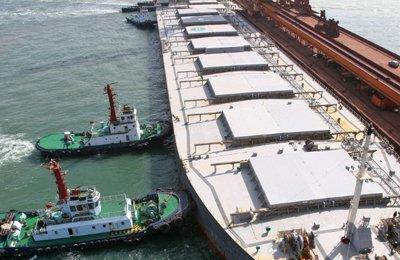In the world of logistics, breaking bulk is a necessary and crucial part of the transportation and shipping process. Whether it’s sorting, repackaging, or transferring goods, breaking bulk ensures that products are efficiently and effectively distributed to their final destination. Join us as we delve into the complexities of breaking bulk logistics and explore the innovative solutions that keep the supply chain moving seamlessly.
The Importance of Breaking Bulk in Logistics
Breaking bulk in logistics is a crucial concept that impacts the efficiency and cost-effectiveness of transporting goods. By breaking bulk, goods are divided into smaller quantities which can be more easily managed and transported. This process involves separating large shipments into smaller units to meet individual customer needs and to optimize transportation methods.
One of the key benefits of breaking bulk is the ability to reduce transportation costs. When goods are broken down into smaller quantities, they can be shipped using a variety of transportation methods, such as trucks, trains, or ships, which can be more cost-effective than shipping larger quantities all at once. Additionally, breaking bulk allows for more flexibility in delivery schedules and can help reduce storage costs by allowing for quicker turnaround times. Overall, breaking bulk in logistics plays a crucial role in streamlining the transportation process and improving supply chain efficiency.

Efficient Strategies for Transporting Bulk Goods
When it comes to efficiently transporting bulk goods, there are several strategies that can help streamline the process and minimize costs. One effective approach is to utilize intermodal transportation, which involves using multiple modes of transport such as trucks, trains, and ships to move goods from one location to another. This approach can help reduce transportation time and costs, as well as minimize the risk of damage to the goods.
Another key strategy for transporting bulk goods is to optimize packaging and containerization. By using standardized containers and packaging materials, companies can maximize the amount of goods that can be transported in each shipment, leading to lower transportation costs and improved efficiency. Additionally, implementing just-in-time inventory practices can help ensure that goods are transported only when needed, reducing the need for excess inventory and further enhancing efficiency.

Optimizing Shipping Processes for Bulk Cargo
When it comes to , there are several key factors to consider in order to ensure efficiency and cost-effectiveness. One important aspect is the selection of appropriate transport modes, such as rail, road, or sea, depending on the volume and type of cargo. Rail transport, for example, is often preferred for moving large quantities of heavy materials over long distances, while road transport may be more suitable for shorter distances and smaller loads. By carefully choosing the most suitable transport mode for each shipment, companies can minimize transit times and reduce transportation costs.
Another crucial factor in is the efficient handling and storage of goods at both origin and destination points. Utilizing specialized equipment, such as bulk carriers, containers, and warehouses, can help to streamline the loading and unloading processes, reduce the risk of damages, and maximize storage capacity. Additionally, implementing digital tracking systems and real-time monitoring technologies can provide visibility and control over the entire shipping process, allowing for timely interventions and adjustments to ensure smooth and successful deliveries.

Maximizing Cost Savings through Effective Bulk Breakage Operations
Are you looking to maximize cost savings in your bulk breakage operations? By implementing effective strategies and techniques, you can streamline your logistics, transport, and shipping processes to drive down costs and increase efficiency. One key aspect to focus on is optimizing your bulk breakage operations to minimize waste and maximize productivity.
One way to achieve this is by utilizing specialized equipment and technology to efficiently break down bulk shipments into smaller units. This can help reduce handling costs, minimize product damage, and increase overall throughput. Additionally, implementing proper organization and inventory management techniques can help minimize excess inventory and ensure that products are moving through your supply chain in a timely manner. By focusing on these key areas, you can unlock significant cost savings and improve the overall performance of your bulk breakage operations.
Wrapping Up
In conclusion, the world of breaking bulk logistics is a complex and ever-evolving industry that plays a crucial role in the global economy. From the transport of goods across vast distances to the intricacies of shipping and handling, each step in the process requires careful planning and coordination. As we look to the future, innovations in technology and sustainability will continue to shape the way we approach the challenges of breaking bulk. Whether by land, sea, or air, the efficient movement of goods will always be essential to keeping the world running smoothly. Thank you for joining us on this journey through the world of breaking bulk logistics.
